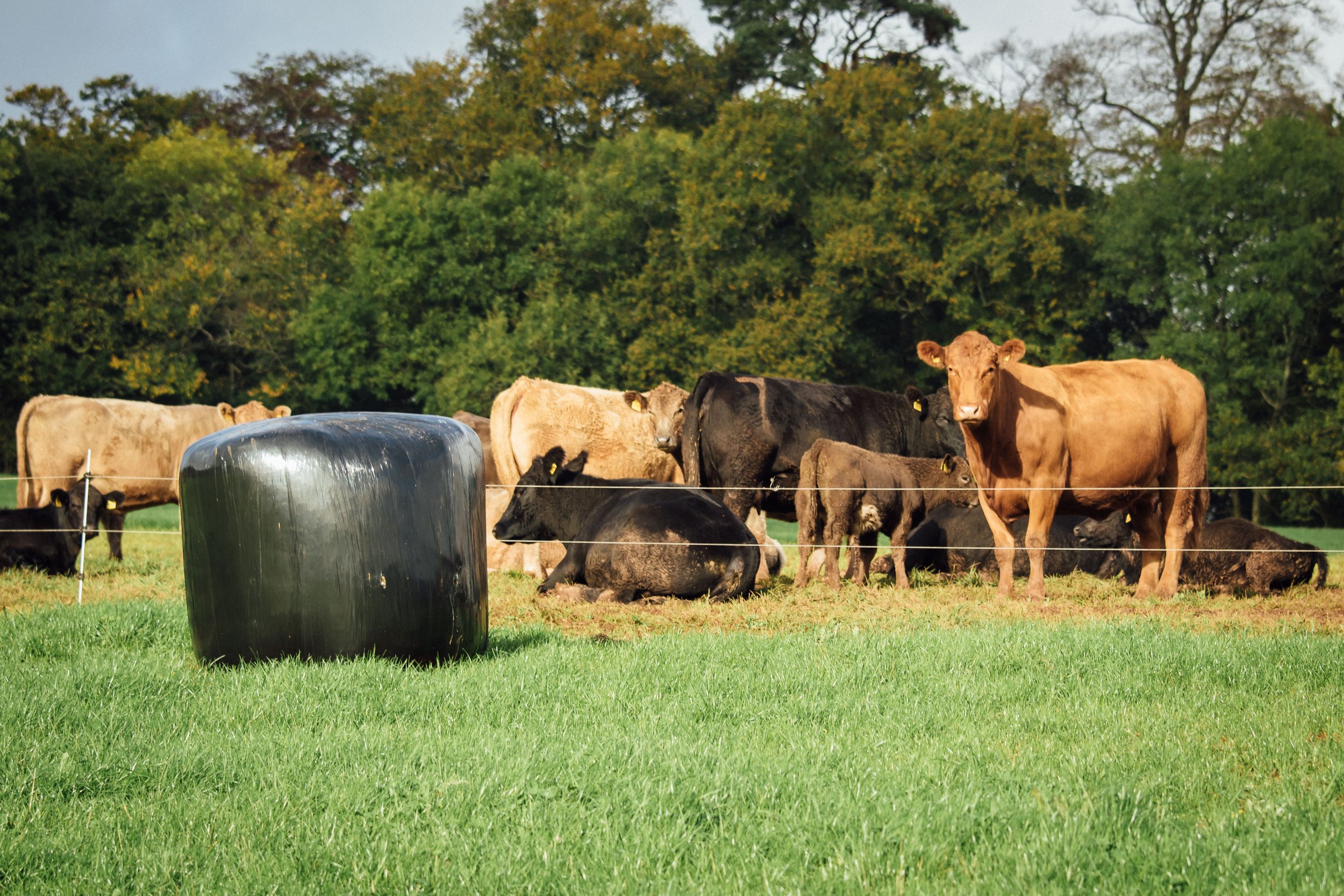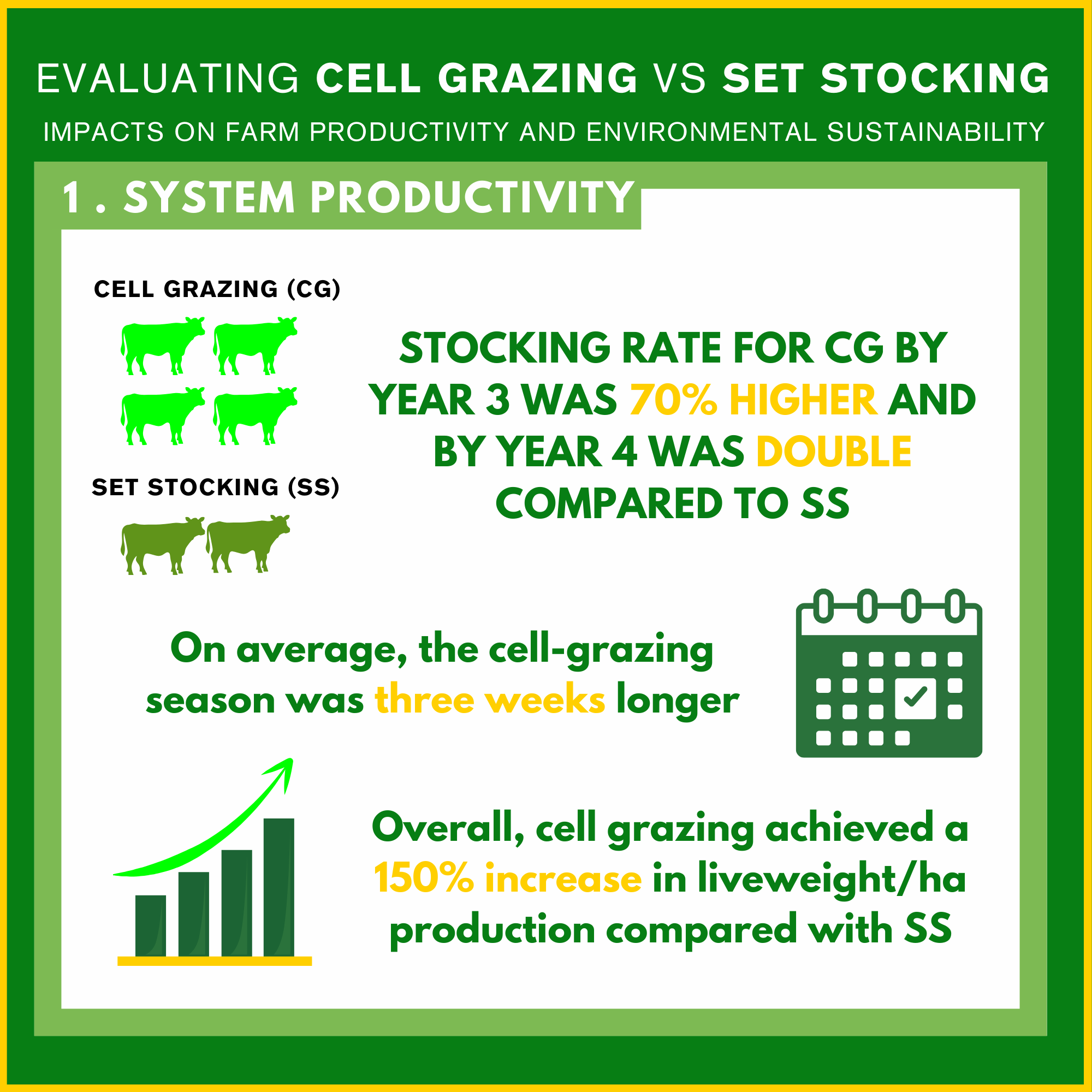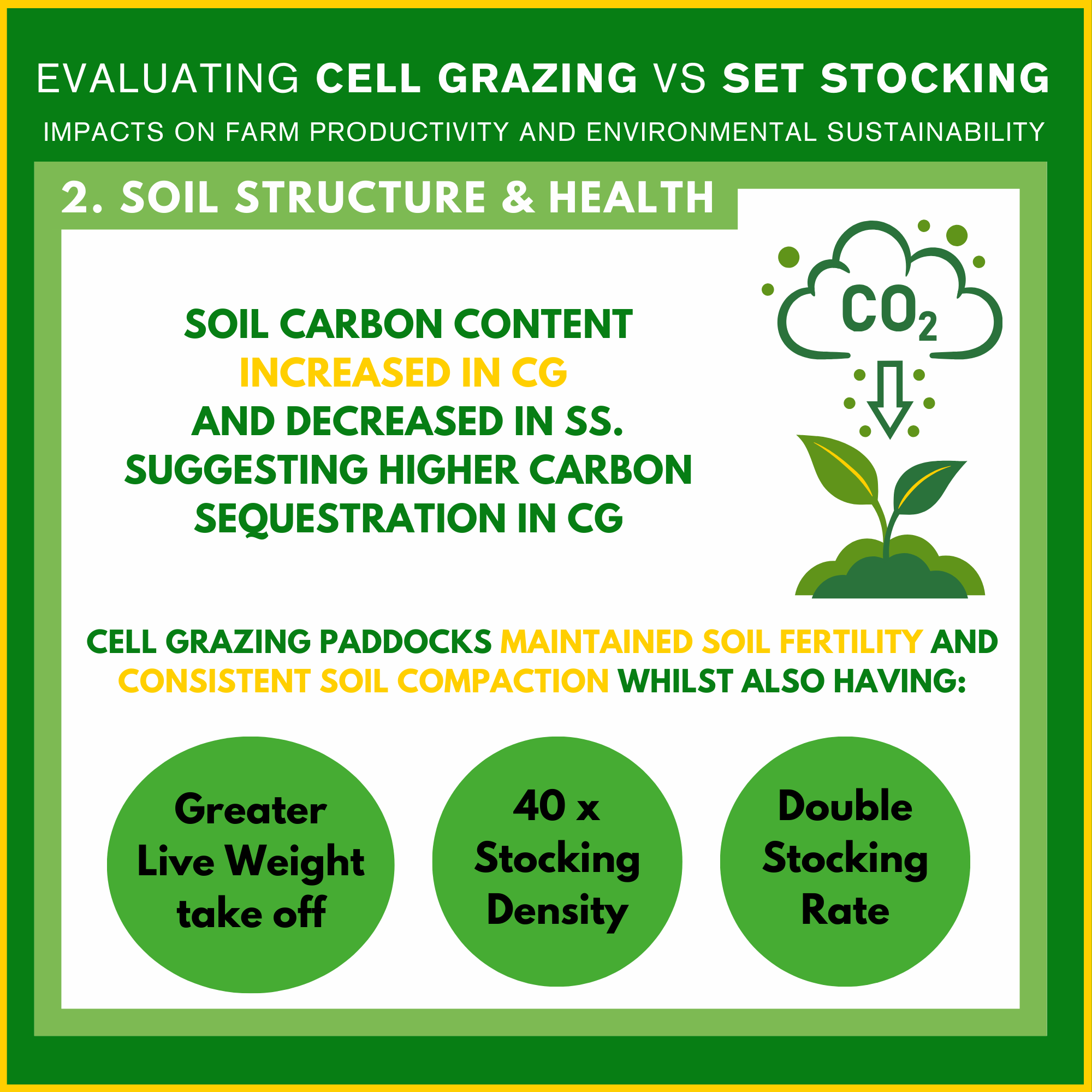
Resources & Guides
Utilise these free resources from Precision Grazing!
Bale Grazing: A Comprehensive Guide
Bale grazing provides numerous benefits for both soil health and farm economics, making it an excellent strategy for winter livestock feeding. One of the key advantages is improved soil health, with the practice promoting nutrient cycling and organic matter distribution through the manure and unutilised forage left in the field. This leads to increased soil organic carbon (SOC) levels and enhances soil fertility.
The trampling action of livestock also contributes to improved soil structure, boosting water retention over time. Additionally, bale grazing fosters biodiversity, supporting a diverse microbial community that is essential for the long-term sustainability of pasture systems.
In terms of economics, bale grazing significantly reduces the costs associated with housing livestock. Farmers save on labour, machinery, and feed costs, especially when grazing on rested pasture.
Compared to forage crops, bale grazing lowers the risk of soil damage, nutrient leaching, and crop failure, while improving the land’s water-holding capacity and preventing run-off. This approach allows for continued use year after year, making it a cost-effective and environmentally sustainable choice for livestock farming.
Research & Development
We’re excited to share insights from study we started in 2017 to obtain scientific evidence of the effects that a Managed Grazing System can provide to the both the commercial farmer and the environment simultaneously.
The 4 year ongoing study comparing Cell Grazing (CG) & Set Stocking (SS) has demonstrated that cell grazing significantly outperforms traditional set stocking. By rotating livestock daily, CG boosts pasture growth by 40% and liveweight production by 140%, while supporting double the livestock per hectare and enhancing soil carbon storage. CG also maintained healthier pastures and extended the grazing season.
RESEARCH CENTRE: Rothamsted Research
PROJECT PARTNER: Precision Grazing Ltd
James Daniel, Director of Precision Grazing Ltd, comments:
“The findings from this study reinforce the significant benefits of adopting innovative grazing systems demonstrating the substantial improvements in pasture growth, soil health, and livestock productivity. This evidence re-enforces what our clients have experienced on farm and demonstrates that our advice and approach is underpinned by science. I hope this work will encourage other farmers to optimise their grazing management for the benefit of their bottom line and the wider environment as well as demonstrating to policy makers that it is the how not the cow which matters!”











